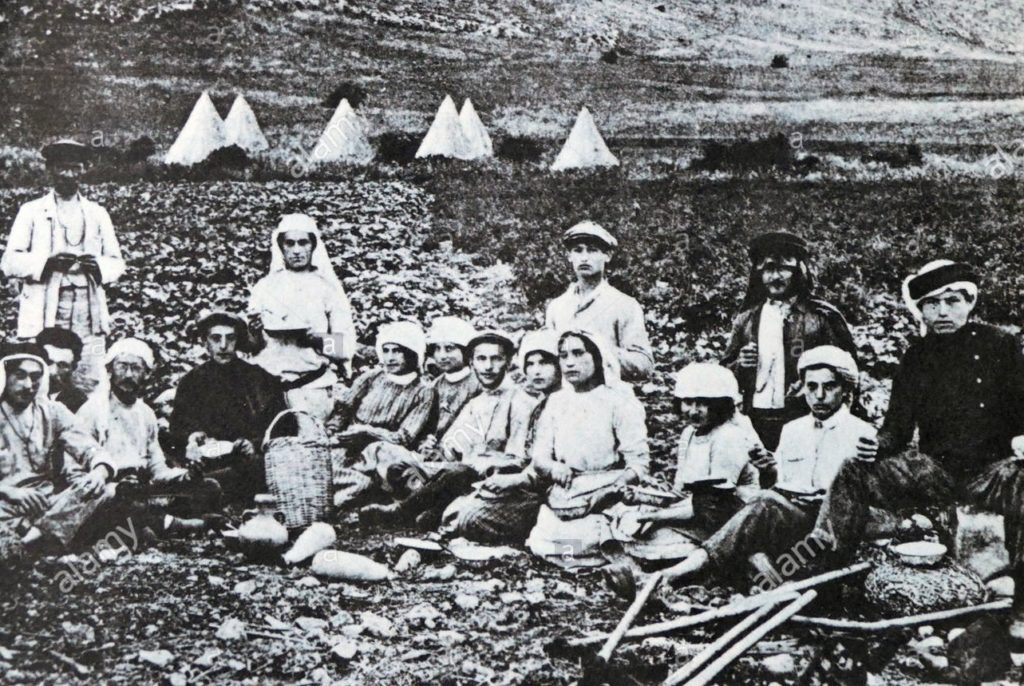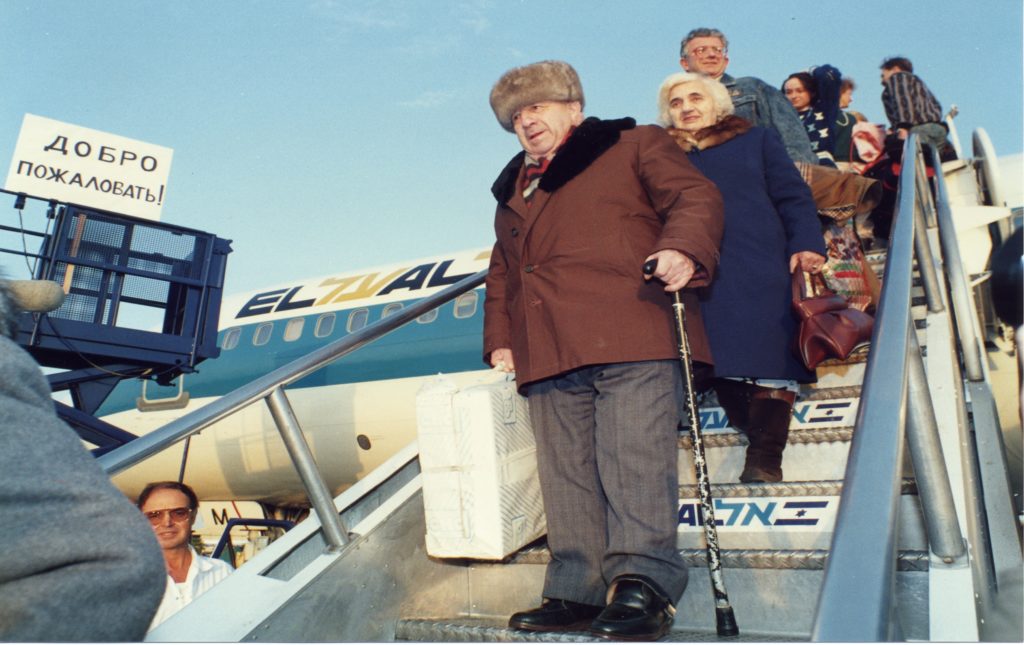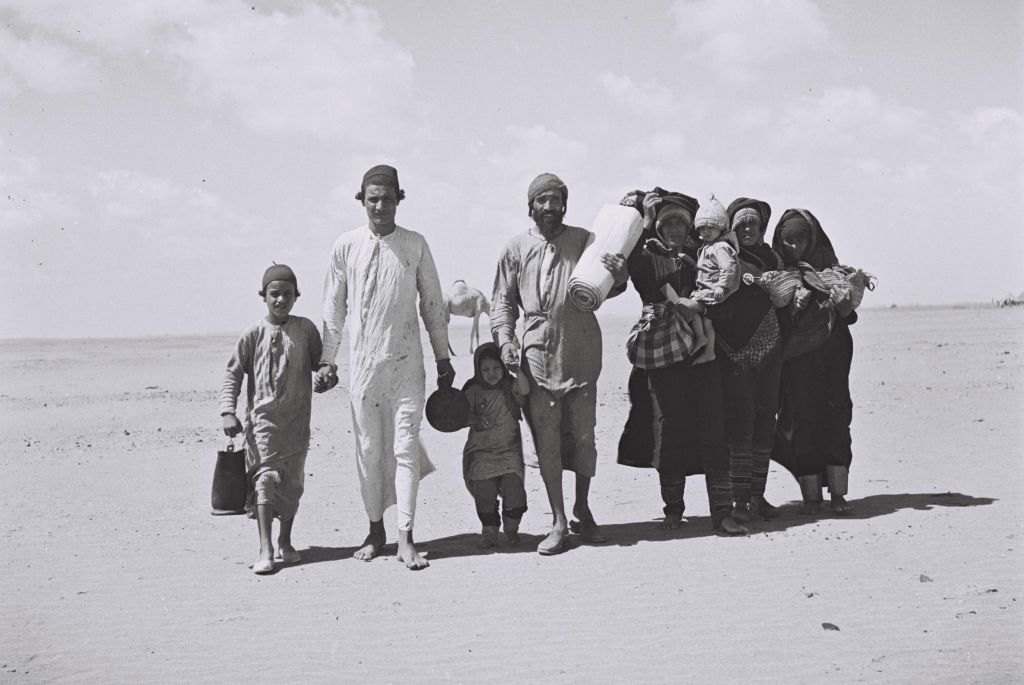
Outcasts and Orphans: The Real Story of the Modern-Day Jewish Return to Israel
Published on: 3.9.2021By: David Parsons, ICEJ Vice President & Senior Spokesman
In late July, the International Christian Embassy Jerusalem welcomed another Aliyah flight bearing Jewish families making their way home to Israel. This particular plane arrived from Paris with 160 French Jewish immigrants on board, with the ICEJ sponsoring flights for 32 of these newcomers wanting to start a new life in Israel away from the rising antisemitism in France.

Some may wonder why French Jews would need help with their flights to Israel. France is perceived as a well-to-do country, and thus most French Jews ought to be able to afford the move to Israel. But the reality is that much of the old-line Ashkenazi Jewish community in France was wiped out or fled during the Holocaust. Of the 500,000 Jews left in France today, nearly three-fourths come from Sephardic Jewish families who escaped from North Africa during colonial uprisings in the 1950s and 60s. And with them came many Muslim immigrants from Algeria, Morocco and Tunisia, who settled alongside the Jewish refugees in the same poorer neighbourhoods of Paris, Marseilles and other French cities.
Today, many of these North African Jewish and Arab families still live side-by-side in these same crowded, working-class neighbourhoods. And over the past two decades, the Jewish families in these areas have come under the increasing threat of antisemitism, as many young French Muslims have been drawn into radical Islam.
Even in more prospering areas of France, Jews have felt under siege, especially since the terror assault on the Charlie Hebdo magazine offices and the deadly hostage stand-off at the Hyper Cache kosher supermarket in Paris in 2015. As is the case all across Europe, Jewish synagogues, day schools, museums and community centers in France have become like fortresses, with metal detectors and heavily armed guards posted outside.
As a result, nearly 250,000 Jews have left France since the year 2000, when violent protests erupted against Israel and Jews at the outset of the second Palestinian intifada. Some of these Jewish émigrés opted to join the growing French Jewish enclaves in Canada, Australia or the US, but a rising number have chosen Israel as a safer location for them. Many of those coming to Israel right now tend to be Sephardic Jews from poorer, more vulnerable neighbourhoods, and they indeed need help to cover the expenses of moving to another country. So, it is our privilege to assist them on their way home to Israel.

THE TRUTH is that most of the estimated 3.5 million Jews who have immigrated to Israel over the past 140 years have been poor and in great need of assistance. The modern-day Ingathering began in the 1880s, when Jews from southern Russia decided to flee ongoing pogroms by leaving everything behind and started walking towards Jerusalem; they knew the direction because they had always prayed facing the holy city. At about that same time, the ancient Yemenite Jewish remnant also felt a drawing back to the Promised Land and they came by foot with few possessions in hand.
This fit the vision of the last-days Ingathering of Israel proclaimed by the prophet Isaiah: “What will they answer the messengers of the nation? That the Lord has founded Zion, and the poor of His people shall take refuge in it.” (Isaiah 14:32) His prophetic words have turned out to be extremely accurate.
The next great wave of Aliyah took place as Israel gained its independence in 1948. The young nation made it a priority to bring in all the beleaguered Jewish refugees from Europe who had been denied entry under the British Mandate. The focus was on the 250,000 Holocaust survivors still stuck in displacement camps across Europe. These were primarily European Jews who had lost everything in the Nazi Holocaust – not only their homes and wealth but their families as well. Many were left without a single living relative. Thus, a wave of penniless orphans were absorbed into an already struggling country of 660,000 people.
In his book “My Promised Land: The Triumph and Tragedy of Israel”, journalist Ari Shavit writes about how the State of Israel was established by European Jews who were orphaned by the Holocaust. Many of their parents and grandparents sent them ahead to Palestine in the 1930s but never made it themselves. Others rebelled against their parents and travelled to Eretz Israel on their own, and never saw their parents again.

“Zionism was an orphans’ movement, a desperate crusade of Europe’s orphans”, writes Shavit. “As the unwanted sons and daughters of the Christian continent fled the hatred of their surrogate mother, they discovered they were all alone in the world… Having lost one civilisation, they had to construct another. Having lost their homeland, they had to invent another. That is why they came to Palestine, and why they now cling to the land with such desperate determination.”
These mainly Ashkenazi Jews from European backgrounds then faced a new and sudden crisis. Following Israel’s victory in the 1948 War of Independence, many Arab countries began expelling Jewish communities that had lived in their midst for over 2,000 years. In the early 1950s, more than 800,000 Sephardic and Mizrachi Jews (of Spanish and Middle Eastern origins) began flooding into Israel, many by foot. They came from Morocco all the way to Iraq, stripped of all possessions. Many had left behind large villas and lucrative businesses, only to spend the next several years living in tents. Early on, there were social tensions between Ashkenazi and Sephardic Jews, yet the nation managed to successfully absorb this massive wave of destitute refugees.
The next major wave of aliyah came when Soviet communism collapsed, opening the door for over one million Russian-speaking Jews to come home to Israel during the 1990s. As they left their former nations, the authorities severely limited the amount of money and goods they could take with them. When neighbours found out they were moving to Israel, no one wanted to pay anything for their homes, knowing it could be gotten on the cheap once they left. Stories abound of these Soviet Jewish olim throwing their last few rubles and kopeks on the tarmac once they landed at Ben-Gurion Airport.
Still today, there are many Jews making Aliyah to Israel who are struggling and need help in re-starting their lives in the Land of Promise – such as the Ethiopian Jews and Bnei Menashe. This also includes even French Jews, as not all of them can afford the move abroad and rebuilding of their lives from scratch. So we are there to help, knowing that Israel, after all, is a country built by orphans and outcasts regathered from Gentile nations who had always rejected them. Indeed, “The Lord, has founded Zion, and the poor of His people shall take refuge in it.” (Isaiah 14:32)

Please support the ICEJ’s ongoing Aliyah efforts. Donate today!